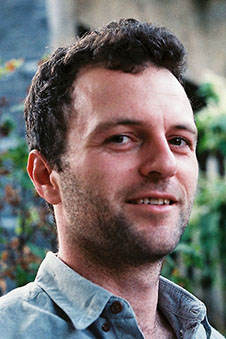Fear, anger, sadness – while it is often assumed these emotion concepts are the same the world over, new research suggests there is greater cross-cultural variation in “how people think about emotions than is widely assumed", contributor Dr Joseph Watts says.

Dr Joseph Watts
Dr Watts, a Research Fellow in the University of Otago's Religion Programme, is part of an international project on cross-cultural variation in emotion concepts.
The research team includes psychologists at the University of North Carolina at Chapel Hill in the US, and linguists at the Max Planck Institute for the Science of Human History in Germany; their findings have just been published in one of the world's top academic journals, Science.
The research combines wordlists from 2,474 languages in 20 major language families. Using a computational approach, the team identified patterns of “colexification” – a phenomenon in which languages use the same word to express semantically related concepts. Persian, for instance, uses the word-form ænduh to express both the concepts of grief and regret.
“This provides a new way of systematically identifying how people conceptualise emotions across thousands of different languages,” Dr Watts says.
By building massive networks of colexification, the team found that there is substantial variation in how languages conceptualise emotion around the world. For example, Nakh-Dagestanian languages from the Caucasus view “grief” as similar to “fear” and “anxiety,” but Tai-Kadai languages from Southeast Asia view “grief” as similar to “regret.” This challenged common assumptions about the universal nature of emotion semantics.
However, variation in emotion semantics was not totally without structure. Language families in close geographic proximity were found to share more similar views of emotion than more distant language families. A likely reason for this is that common ancestry and historical contact between these groups has led to a shared understanding of emotion. This highlights the importance of culture in the way people think about emotions.
Emotion concepts were also found to be structured by whether they are pleasant vs. unpleasant to experience, and whether they are arousing versus calming to experience. This suggests that there are universal elements of emotion experience which may stem from universal biological processes.
Together, the findings of this research suggests that both biological and cultural evolutionary processes shape the way humans think about emotions.
Due to its scope, the research represents a departure for cross-cultural studies of emotion, which typically involve comparing only two cultures or focus on industrialised nations where it is easy to recruit human participants. The study examines common elements from languages worldwide to build large “associative networks” of meaning, and in doing so shows how new approaches in comparative linguistics can expand our understanding of human cognition.
Dr Watts plans to do more work on cross-cultural variation in mental state representations in the future. He recently received a Marsden Fast-Start grant to study cross-cultural variation in mental state vocabulary in the Pacific.
For further information, contact:
Dr Joseph Watts
Research Fellow, University of Otago
Tel +64 3 479 7666
Email joseph.watts@otago.ac.nz
(contact via email to arrange an interview please)
Joshua Conrad Jackson
University of North Carolina
Email joshcu@live.unc.edu
Kristen Lindquist
University of North Carolina
Email Kristen.lindquist@unc.edu
Authors:
Emotion Semantics Show Cultural Variation and Universal Structure Across Languages of the World
- Joshua Conrad Jackson (Department of Psychology and Neuroscience, University of North Carolina at Chapel Hill)
- Joseph Watts (Department of Linguistic and Cultural Evolution, Max Planck Institute for the Science of Human History; Religion Programme, University of Otago; Center for Research on Evolution, Belief, and Behaviour, University of Otago; Social and Evolutionary Neuroscience Research Group, Department of Experimental; Psychology, University of Oxford)
- Teague R. Henry (Department of Psychology and Neuroscience, University of North Carolina at Chapel Hill)
- Johann-Mattis List (Department of Linguistic and Cultural Evolution, Max Planck Institute for the Science of Human History)
- Robert Forkel (Department of Linguistic and Cultural Evolution, Max Planck Institute for the Science of Human History)
- Peter J. Much (Carolina Center for Interdisciplinary Applied Mathematics, Department of Mathematics, University of North Carolina at Chapel Hill, Department of Applied Physical Sciences, University of North Carolina at Chapel Hill)
- Simon J. Greenhill (Department of Linguistic and Cultural Evolution, Max Planck Institute for the Science of Human History; ARC Centre of Excellence for the Dynamics of Language; Research School of the Social Sciences, Australian National University)
- Russell D. Gray (Department of Linguistic and Cultural Evolution, Max Planck Institute for the Science of Human History; School of Psychology, University of Auckland)
- Kristen A. Lindquist (Department of Psychology and Neuroscience, University of North Carolina at Chapel Hill)
FIND an Otago Expert
Use our Media Expertise Database to find an Otago researcher for media comment.